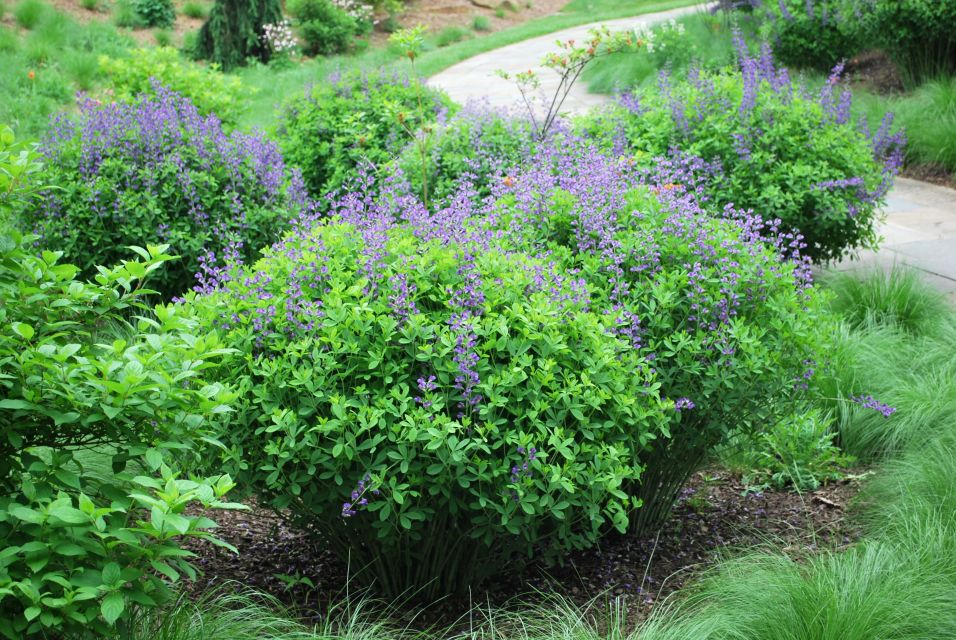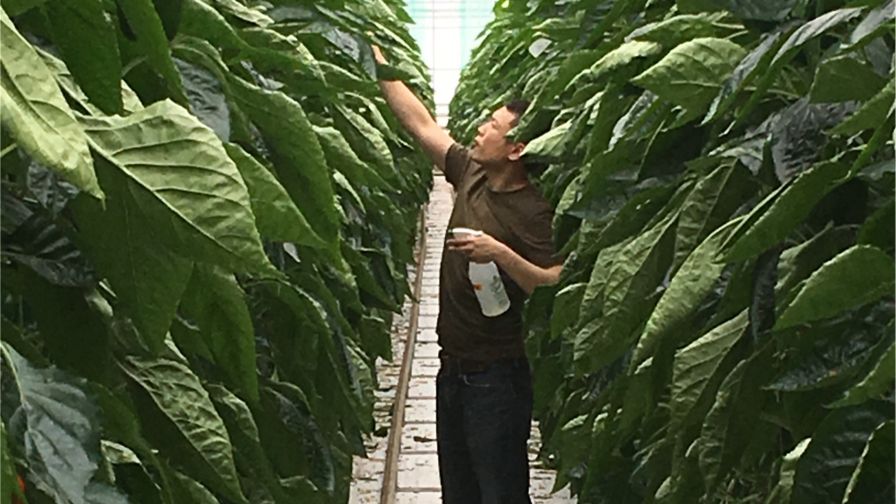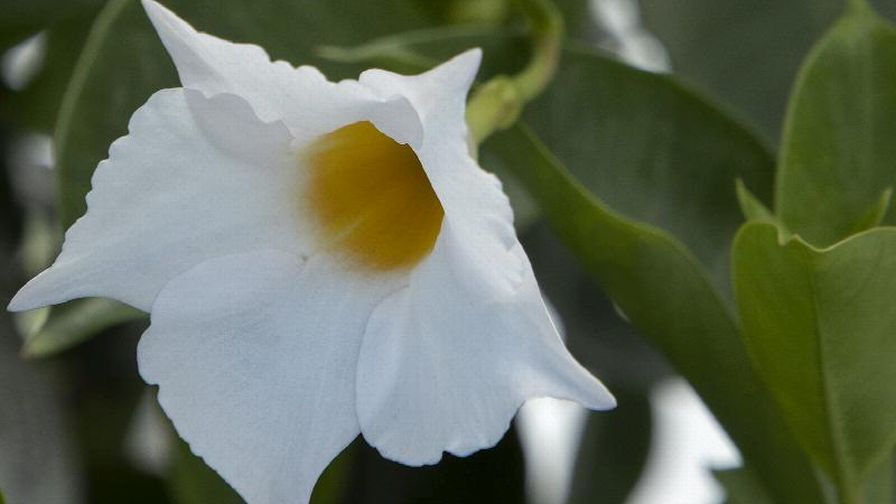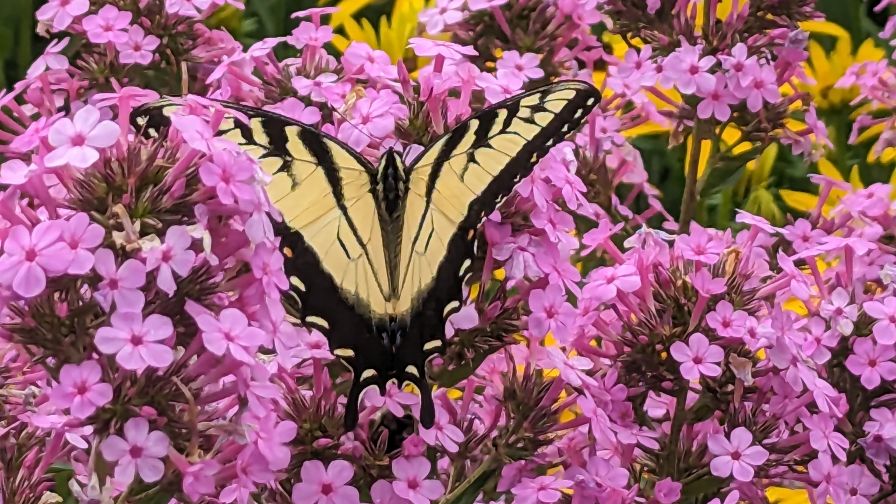Takii Seed: 2010 Industry Achievement Award Winner
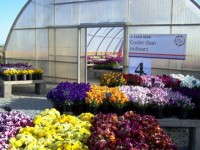
When you visit American Takii’s trials in Salinas, Calif., the place is an oasis of calm reflection. While more aggressive companies introduce 50 or even 100 new varieties each year, Takii may introduce 12. Based in Japan, the global flower and vegetable breeder has a 175-year heritage and doesn’t get swept up in passing fads or keeping up with the Joneses. Longevity, focus and experience bring wisdom and a steady, patient approach.
“I recently visited Takii’s office in Kyoto and was so impressed with the focus of the top management,” says Anna Ball, CEO of Ball Horticultural Co. “They seem to know exactly where they are going and have a clear strategy and lots of determination. I admire them as a company. They have been around a lot longer than most of us and have obviously done a lot of things really well. Of course, they are privately held, which I think is a strong reason for their success.”
Being one of the oldest and a family-owned company is rare in the seed industry, says American Takii’s Vice President and General Manager Rick Falconer. “The seed industry is a challenging business, and frankly, it’s one many investment companies will not touch. Understanding the business model and having the patience to wait for the return on investment is something only people who know the seed business are willing to take. For example, American Takii built our Yuma breeding station 11 years ago. We are now just seeing revenue generated by this investment.”
Growing Globally
Founded in 1835, for the first 85 years, Takii focused on serving domestic needs in Japan. “We began selling our seeds outside Japan in 1920,” says Osamu Sugimura, director of international sales and marketing for Takii & Co. and president of American Takii. “We published our first English catalog in 1927. Although exports were limited during World War II, vegetable breeding continued. We released the world’s first brassica (cabbage) commercial hybrid varieties in 1950. That’s when our sales outside Japan began to show a real growth.”
Vegetable sales led Takii to set up an office and production base in Salinas, Calif., and pansies soon followed with ‘Imperial Blue,’ which received an All-America Selections (AAS) medal. American Takii was established in 1982. But it was flowers that brought Takii to Europe. “It was good to be close to the European suppliers as we were importing flower bulbs and other materials for the Japanese market,” Sugimura says. “Later the office became another fully owned subsidiary, Takii Europe B.V.”
Takii also has subsidiaries in South America–one in Chile for seed production and another in Brazil. In addition to seed production, Brazil is the most important South American market for sales.
Takii recently increased its presence in Europe and in flowers by purchasing two seed-based breeding companies–K. Sahin Zaden in Holland and Global Flowers in Denmark. “Many of the species both companies carry can complement or strengthen Takii’s existing programs,” Sugimura says. “For example, Sahin has a sunflower program and Global Flowers has a lisianthus program. Their materials are so different from Takii’s that they can widen and strengthen our program in sales and breeding. Another example is Sahin’s specialty grass varieties and Global Flowers’ gerbera varieties.”
Takii has increased staffing to support this expansion and has increased sales. “We are promoting the fact that Takii now offers several product segments, such as pot plants, perennials, ornamental grasses, vegetables, cut flowers and annual bedding plants,” Falconer says. “The two brands will be consolidated under the Takii brand for our professional products and many of the Sahin products will continue under our Sahin consumer brand.”
Another investment Falconer feels is even more significant is Takii entering the Bio Seeds/Keygene Strategic Alliance in 2005. “Being part of this advanced technology group gives Takii more tools so our breeders can do even more,” he says. “Turning the product development wheel faster will keep us competitive.”
Exceeding The Ordinary
Takii is known for introducing unique varieties. “That’s the case in vegetables as well as flowers,” Falconer says. “We have the reputation that our varieties are unique in some way or form. Even if it’s a commodity product, our best successes are a unique trait that captures interest. It may be a unique color in a pansy or disease resistance in an onion, or it might be the first variety from seed, such as osteospermum or canna.”
Breaking new ground means taking on challenges. “With unique comes quality and availability issues, but Takii is committed to improve both, bringing supreme service to customers,” says Bonnie Marquardt Dillard, who has been the marketing face of American Takii for more than 20 years. “Unique in the past was often a new flower or a first-time seen color. In the future, I can see where new breeding techniques will allow for the innovation of characteristics that are not initially seen– more disease resistances or added fragrances and even impossible combinations.”
Achievements in breeding vegetable hybrids include the world’s first hybrid tomatoes, cabbages, turnips, daikon, eggplant, broccoli and celery. By 1985, Takii had bred 425 hybrid vegetable and 136 hybrid flower varieties. What percentage of Takii’s business is flowers compared to vegetables? It varies by continent. “In the United States and Europe, 40 to 50 percent is flowers,” Sugimura says. “In other markets, vegetable is much larger than flowers.”
Flower breeding began in 1935, was suspended during World War II and resumed in the late 1940s. Key crops were pansies, flower kale, dianthus and zinnias, which are still mainstays for Takii today.
“For the bedding plants, the first breakthrough was the zinnia F1 Sun series,” Sugimura says. “We received AAS medals on Red (1983) and Gold (1984). In the global industry, our Dreamland zinnias, Imperial pansies and Telstar dianthus are well known. Zinnia and dianthus are the two most important species in terms of sales. For cut flowers, sunflower F1 ‘Sunrich Orange’ and flower kale F1 ‘Crane White’ are very well known and enjoying a high market share worldwide.”
Takii has more than 20 AAS winners and many are considered breakthroughs. Telstar dianthus and Fantasy linaria also are past winners of Greenhouse Grower’s Medal of Excellence for Breeding. “I highly commend their flower breeding program for innovative varieties that were not readily available to bedding plant growers,” says Nona Wolfram-Koivula, emeritus director of AAS.
One series that has been a real hit with landscapers is the Tropical cannas, which were the first from seed, naturally dwarf, less expensive than tubers and resolved disease issues. New this year is a dark-leafed breakthrough, ‘Tropical Bronze Scarlet’ (see page 95). Heather Will-Browne, the director of horticulture at Walt Disney World, says her crews will be planting more than 23,000 Tropical cannas in beds this summer. “We love them. They are absolutely hurricane proof!” she says. “They stood through all four hurricanes we had a few years back.”
Sticking With Seed
While most of the seed-based breeders have gotten into vegetative annuals, this is not a major focus for Takii.
“We do have a program for vegetative items, however the size of the program is smaller than that for seed varieties, as seed is a more reliable form as a vehicle of genetics than vegetative,” Sugimura explains. “Seeds have many advantages over cuttings in terms of handling, longevity and storage. It is not possible to produce everything in the form of seed, but in the future, we may be able to breed seed varieties that can also be reproduced vegetatively. That may give more benefit to the growers.”
Moving forward, Takii plans to focus on the items it is most known for, improve seed quality and assure a reliable seed supply and customer satisfaction. “It is a challenging task to improve everything in a short time, but we are sure our history and experience of 175 years will help us survive in this industry,” Sugimura says. “We would like to put our utmost effort to achieve our goal to better serve our customers. In the meantime, we might introduce very interesting items to the market, but we would like to keep it as a good surprise.”
Falconer marvels at how far Takii and the world has come in 175 years. “Today we are breeding plants on a molecular level. We have modern tools that can do remarkable things. Yet, we are still challenged with issues such as producing high germinating seed, selecting traits the consumer needs and managing our inventory as efficiently as possible. We are light years away in technology, yet we’ve only learned the tip of the iceberg when it comes to plant breeding and plant biology. Is there still potential for innovation? Absolutely.”



